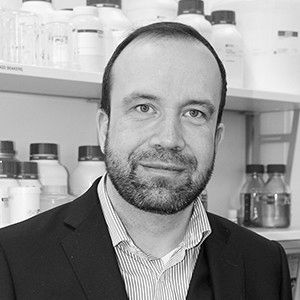
Synthetic Biology is a relatively new discipline, having leapt onto the scene over a decade ago, as a means to introduce engineering principles to improve and exploit bio-based processes. The vision is that genetic parts can be standardised and taken “off-the-shelf” to build complex biological systems to improve upon various industrial processes. The key to this vision is being able to identify parts that perform in a predictable fashion in any given biological system, and this remains its greatest challenge. At Synpromics we have developed a systematic way in which to construct synthetic promoters that mediate unprecedented control of gene expression. By adopting complex bioinformatics analysis of functional genomics datasets we are able to create promoters that are active under pre-defined transcription profiles. The approach is broadly applicable across all eukaryotic organisms and we have employed it across a diverse array of applications, from agricultural biotechnology to gene therapy. Here we present data on promoters that mediate predictable expression in different human cell types and present in vivo data demonstrating specific and efficacious gene expression. The promoters add to the gene therapist’s toolbox and can be used to enable the design of more effective gene transfer vectors to enhance the treatment of genetic disease.
Dr Roberts read Biochemistry at the University of Glasgow then studied for his doctorate at the University of Cambridge. After post-doctoral work at Royal Holloway, University of London, in one of the leading gene therapy groups in Europe and a two-year Marie Curie fellowship in the National Hellenic Research Foundation in Greece, he was appointed head of Research and Development at Regulon Inc, a position he held from 2004 until 2009. He then proceeded to found Synpromics in 2010 to develop synthetic promoters for commercial applications.